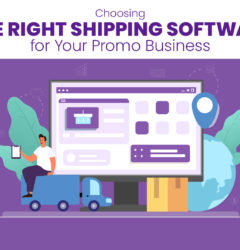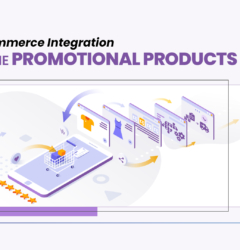05 Oct

How beneficial is ERP and E-commerce integration?

Order processing is more accurate as a result of less manual order entering. This saves time, boosts throughput, and reduces order and delivery errors.
Inventory control has been improved by automatic inventory synchronization. Customers may get precise inventory levels without any additional assistance.
Customers are automatically notified when their orders are shipped, and they may monitor their order and shipping process online.
Sales promotions targeted at high-value clients result in higher profit. Marketing efforts are more targeted and successful when ERP data is connected with eCommerce.
Tax compliance that is automated eliminates the possibility of rate and collection problems.
Inventory management is simplified by coordinating product stock and availability.
Scalability without the need for extra resources.
How your ERP works and how E-Commerce can help
In general, your company’s IT infrastructure is the backbone of your Enterprise Resource Planning (ERP) software. It handles your bookkeeping, customer database, production schedules, management of materials, ordering, and shipping etc. It’s a powerful business tool because your eCommerce platform is a potent sales tool, it must be compatible with your ERP.
Older Technology
Because ERP is critical to a company’s performance, the technology isn’t updated frequently. Upgrading may or may not occur. Even upgraded ERPs are frequently based on outdated technologies. A current ERP system could be based on software that is 10 to 20 years old. An ERP system cannot simply be integrated with third-party systems in practice. Because the outdated technology must smoothly marry with the new technology, this older technology might make integrations much more difficult.
Extensive Customization
The fact that businesses are all not the same in terms of their processes, how they function both internally and externally, ERP systems do not work well without some customization levels. Companies that use SAGE or SAP, indulge in the chances that their ERP installation has been customized and is not similar to any installations of the same software at other companies. Your ERP installation is tailored to your company’s needs and workflows. However, individual ERP setups necessitate a unique eCommerce integration.
Integration with your eCommerce platform can be difficult because your ERP contains a large amount of data, has older technology and has been specially tailored. You must pick which system will serve as the main data source. Is it going to be the ERP or the eCommerce platform? Because the ERP has tentacles in every department and function, it will almost certainly be your master data source.
The 4 Benefits of E-Commerce ERP integration
Better use of data
The ability for an entire organization to have real-time data where there is a dependable source of accurate data which in turn helps the entire company benefit from a centralized source of data.
Visibility of inventory
Without an ERP integration, it is impossible to maintain trustworthy information on your E-Commerce website. An ERP integration ensures that both eCommerce workers and customers have access to up-to-date inventory information.
Savings on Expenses
Just assume not having a sync purchase data from your ERP to your eCommerce system. In that situation, you’ll have to keep unneeded inventory on hand, make false estimates, and convey incorrect information to vendors or suppliers. What was the end result? Stock gaps, obfuscated transactions, and general inefficiencies.
Client Experience
When a product’s buyers prefer overall experience and self-service rather than having to call sales agents in order to be able to place their orders. However, with the help of an ERP integration, it is possible to better monitor and personalize the account and provide customers their order status, purchase history, and shipment data automatically.
Why Should Businesses Integrate?
Are your B2B E-Commerce processes driving you crazy? No worries!
The requirement for more employees to execute transactions declined most dramatically when demand grew. This will allow you to efficiently run the business in several crucial aspects. Order data, inventory data, items, customers, and transportation/tracking data between your formerly separated platforms.
What Are the Consequences of Manual Processes?
There are numerous errors that are prevalent when your E-Commerce and other digital ordering procedures are not automated. These errors include:
- Wrong shipping addresses
- Incorrect inventory levels
- Missing or incorrect product information etc.
Your complete end-to-end customer experience is also in danger without two-way integration.
What Are the Challenges to B2B E-Commerce Integration?
Companies frequently underestimate the need to link their ERP systems with eCommerce owing to the expense or disruption caused by updating old systems.
It is not a simple process. That is why working with the right team and having the right solution developed is very important and helps to ease all the processes for you automatically.
For many B2B businesses all around the world, the cost quickly becomes justifiable as the benefits become obvious. In terms of (a), your consumers’ overall experience and (b) your operations, the advantages of linking your eCommerce system with your ERP system are immediate and long-term.
So, does B2B E-Commerce Integration really matter?
Nowadays, eCommerce integrated products can automatically transfer data between systems which tends to make work faster and easier with no errors occurring. You won’t have to manually enter data from one system to the next. Manual order processing is up to 25 times slower than B2B eCommerce and digital ordering.
It’s not just about the speed, either!
This generates a virtuous circle in which your organization benefits in every way.
Larger customer loyalty leads to increased order size and more time for your employees to focus on the things that truly matter rather than manual data entry and processing.
Many companies have trouble when they enter the data manually, update product information, and then upload it to their online store. You may oversell if you enter data manually.
Main advantages of E-Commerce ERP Integration
- It eliminates manual data entry, saving time and increasing productivity, and reducing errors while entering orders, inventories, items, customers, and shipping information.
- Streamlines inventory synchronization, tracking updates and providing clients with correct inventory levels without the need to hire additional staff.
- Customers also have the ability to track their products after they deliver their purchases, with the help of notifications.
- It’s easier to deal with inventory adjustments in terms of pricing and goods.
- Gives the flexibility of adding numerous online and offline sales channels without affecting operational efficiency.
- Increased online order demand can be serviced without hiring more people!
Growth Plan
It’s deadly if a company doesn’t grow. If the objective is continued growth, successful integration must be balanced to permit growth. Further growth means more products, additional clients, more data, and more processing. It also means that your business must be set up for automation. According to Accenture, between 2017 and 2020, 86% of industrial businesses expect technology to progress ‘fast’ or ‘at an unprecedented rate.’ Wholesalers include functions like the ability to photo-identify things in order to increase digital experiences. B2B customers require an all-around experience. Wholesalers, producers, suppliers, and distributors have to adapt, expand and innovate continually.
How are you going to manage scalability, whether on the website or the ERP? In case the only consistent changes require a flexible platform that can meet new requirements, a successful and long-term integration. You can avoid data silos, bottlenecks, and juggling processes with software that transforms the data you have into the data you need to grow. The suggestions will help you select an ERP-integrated eCommerce system that is Safe, Scalable, and ready to use.
If you want to be successful online and meet the growing need for digital ordering features, your eCommerce strategy should incorporate connectivity with your ERP, accounting, and inventory software.
The advantages of ERP eCommerce connection are easy to understand, yet integration is tough to implement.
Web Services Pros offers you PromoLink that lets you easily connect your ERP systems with any eCommerce platform that takes account and fulfills new orders regardless of the time or location.
This solution also allows you to give customers real-time access to their account information, allowing you to increase efficiency by allowing customers to follow their order information.
Would you like to learn more about how your organization can benefit from simultaneous ERP and eCommerce?
Related Post
Comments are closed.
Recent Posts
Archives
- March 2025
- February 2025
- January 2025
- December 2024
- November 2024
- October 2024
- September 2024
- August 2024
- July 2024
- June 2024
- May 2024
- April 2024
- March 2024
- February 2024
- January 2024
- December 2023
- November 2023
- October 2023
- September 2023
- August 2023
- July 2023
- June 2023
- May 2023
- April 2023
- March 2023
- February 2023
- January 2023
- November 2022
- August 2022
- June 2022
- April 2022
- March 2022
- February 2022
- November 2021
- October 2021
- September 2021
- July 2021
Request a FREE consultation
We’d love to hear from you

From concept to creation, we turn visions into working software


Copyright © 2024. All rights reserved.
Follow Us
Email: sales@webservicespros.com
Phone: (888)-977-4540

















2 Comments
Mark Miller
Nice post!!
pharmacy uk
I absolutely love your site and content. Blogs are really helpful. Cheers!